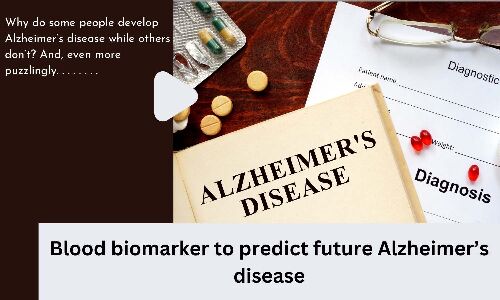Blood biomarker to predict future Alzheimer’s disease

Why do some people develop Alzheimer’s disease while others don’t? And, even more puzzlingly, why do many individuals whose brains are chock-full of 1 toxic amyloid aggregates-a telltale sign of Alzheimer’s brain pathology-never go on to develop Alzheimer’s-associated dementias?
2University of Pittsburgh School of Medicine researchers appear to have found the answer. Star-shaped brain cells called astrocytes are key to swaying the pendulum in Alzheimer’s disease progression, shows new game-changing research published today in Nature Medicine.
By testing the blood of more than 1,000 cognitively unimpaired elderly people with and without amyloid pathology, the Pitt-led research team found that only those who had a combination of amyloid burden and blood markers of abnormal astrocyte activation, or reactivity, would progress to 3symptomatic Alzheimer’s in the future, a critical discovery for drug development aimed at halting progression.
Scientists tested blood samples from participants in three independent studies of cognitively unimpaired elderly people for biomarkers of astrocyte reactivity-glial fibrillary acidic protein, or GFAP-along with the presence of pathological tau. The study showed that only those who were positive for both amyloid and astrocyte reactivity showed evidence of progressively developing tau pathology, indicating predisposition to 4clinical symptoms of Alzheimer’s disease.
Reference:
Astrocyte reactivity influences amyloid-β effects on tau pathology in preclinical Alzheimer’s disease,Nature Medicine, DOI 10.1038/s41591-023-02380-x
from Medical News, Health News Latest, Medical News Today - Medical Dialogues | https://ift.tt/DrT83fp
Comments
Post a Comment